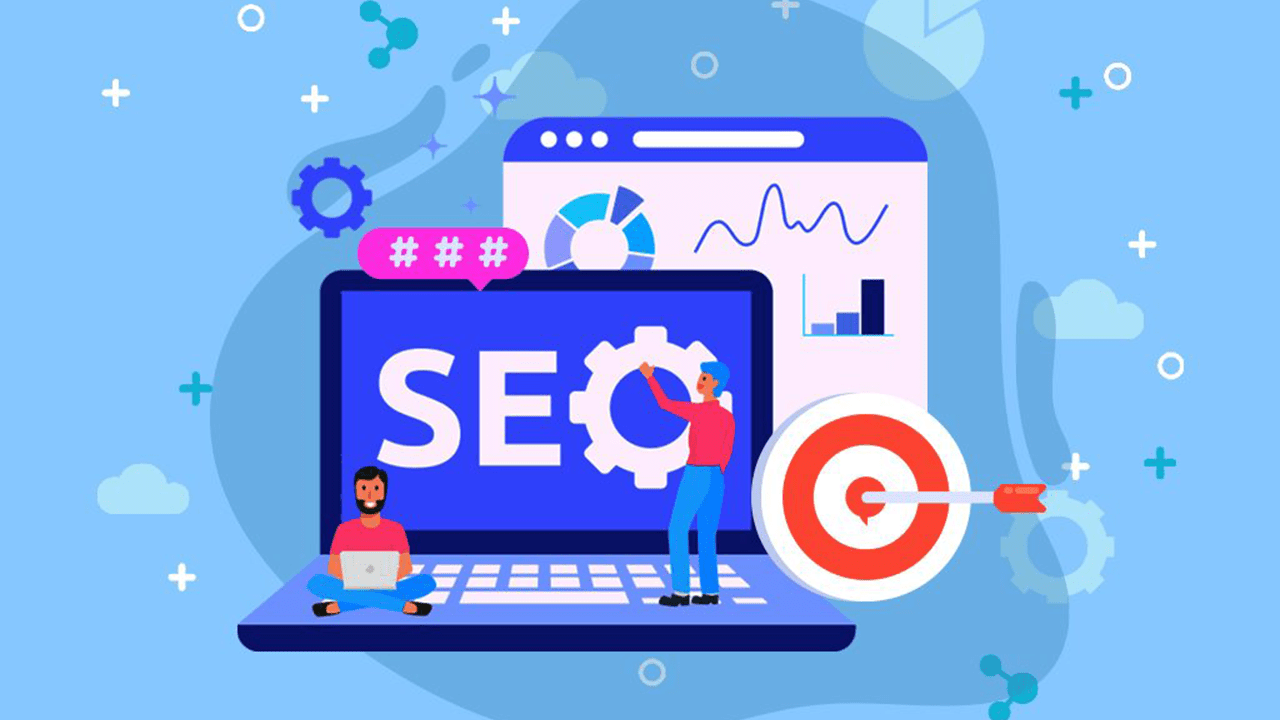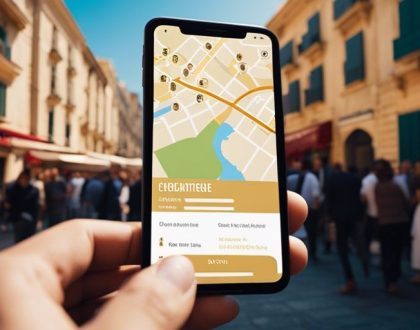Optimize Your Website: SEO Essentials for Malta

In today’s digital landscape, having a strong online presence is crucial for businesses in Malta. To stand out from the competition and attract more organic traffic, optimizing your website for search engines is essential. Search Engine Optimization (SEO) is the process of improving your website’s visibility and ranking on search engine results pages (SERPs). In this article, we will explore the SEO essentials for Malta and provide actionable tips to optimize your website effectively.
Understanding SEO Essentials
What is SEO?
SEO refers to a set of techniques and strategies aimed at improving a website’s visibility on search engines like Google, Bing, and Yahoo. By optimizing your website for search engines, you increase the chances of appearing in relevant search results, driving organic traffic, and reaching your target audience.
Why is SEO important for websites?
SEO plays a pivotal role in attracting organic traffic to your website. When your website ranks higher in search results, it gains more visibility, credibility, and trust from users. This, in turn, leads to increased website traffic, brand awareness, and potential conversions.
How does SEO work?
SEO involves various factors that search engines consider when ranking websites. These factors include relevance, authority, user experience, and technical aspects. By optimizing your website’s content, structure, and performance, you improve its chances of ranking higher on SERPs.
Keyword Research and Optimization
Importance of keyword research
Keyword research is the foundation of any successful SEO strategy. It involves identifying the keywords and phrases that your target audience is using to search for information related to your business. By understanding these keywords, you can optimize your website’s content to match user intent and improve its visibility in search results.
Tools for keyword research
Several tools can assist you in finding relevant keywords for your website. Google Keyword Planner, SEMrush, and Moz Keyword Explorer are popular options. These tools provide valuable insights into keyword search volume, competition, and related keywords, helping you make informed decisions about which keywords to target.
On-page optimization techniques
On-page optimization focuses on optimizing individual web pages to improve their visibility and relevancy for specific keywords. Key elements to consider during on-page optimization include meta tags (title tags, meta descriptions), heading tags, URL structure, and keyword placement within the content. By optimizing these elements, you increase the chances of ranking higher for your target keywords.
High-Quality Content Creation
The importance of content in SEO
High-quality content is the backbone of any successful SEO strategy. Search engines prioritize websites that provide valuable, relevant, and engaging content to users. By creating content that meets these criteria, you enhance your website’s visibility, increase organic traffic, and establish authority in your niche.
Tips for creating high-quality content
- Understand your target audience and their search intent.
- Conduct thorough research on the topic before creating content.
- Use clear and concise language that is easy for readers to understand.
- Incorporate relevant keywords naturally within the content.
- Format content using headings, subheadings, and bullet points for improved readability.
- Include visual elements such as images, infographics, or videos to enhance user engagement.
Best practices for content optimization
When optimizing your content for SEO, focus on the following best practices:
- Write compelling and descriptive meta tags (title tags and meta descriptions).
- Use relevant and keyword-rich headings (H1, H2, H3) to structure your content.
- Optimize image alt tags by using descriptive and keyword-rich text.
- Include internal and external links to reputable sources for added credibility.
- Ensure your content is shareable on social media platforms.
Technical SEO Optimization
Optimizing website speed and performance
Website speed and performance have a significant impact on user experience and SEO. Slow-loading websites tend to have higher bounce rates and lower search engine rankings. To optimize your website’s speed, consider the following:
- Compress and optimize images to reduce file size.
- Minify CSS and JavaScript files to reduce load times.
- Enable browser caching to store frequently accessed files.
- Use a content delivery network (CDN) to distribute your website’s files across multiple servers.
Mobile-friendly website design
In today’s mobile-dominated era, having a mobile-friendly website is crucial for SEO. Google and other search engines prioritize mobile-friendly websites in their search results. Ensure your website is responsive and provides an excellent user experience across different devices.
URL structure and site navigation
Optimizing your website’s URL structure and site navigation helps search engines understand your website’s hierarchy and content organization. Use descriptive and keyword-rich URLs and ensure intuitive navigation, making it easy for users and search engines to navigate your site.
Link Building Strategies
Importance of backlinks
Backlinks, also known as inbound links, are links from other websites that point to your website. Search engines consider backlinks as votes of confidence, indicating that your website is reputable and trustworthy. Building high-quality backlinks is crucial for improving your website’s authority and ranking on SERPs.
Types of backlinks
There are different types of backlinks you can acquire for your website:
- Natural editorial links: Links earned through quality content and online reputation.
- Outreach links: Links obtained by reaching out to website owners or bloggers and requesting a link placement.
- Guest blogging links: Links acquired by writing and publishing guest posts on relevant websites.
- Social media links: Links generated through social media platforms sharing your content.
Ethical link building techniques
When building backlinks, it’s essential to follow ethical practices to avoid penalties from search engines. Some ethical link building techniques include:
- Creating valuable and shareable content that naturally attracts backlinks.
- Engaging in influencer marketing and forming relationships with industry leaders.
- Participating in relevant online communities and contributing helpful insights.
- Conducting interviews or collaborating with other website owners or bloggers.
- Guest posting on reputable websites within your industry.
Social Media and SEO
How social media impacts SEO
While social media platforms do not have a direct impact on search engine rankings, they play an indirect role in SEO. Social media can help increase your website’s visibility, attract more traffic, and encourage engagement. Sharing your content on social media platforms can lead to more backlinks, brand mentions, and social signals that indirectly influence search engine rankings.
Leveraging social media for better visibility
To leverage social media for better SEO:
- Create and optimize social media profiles for your business.
- Share your website’s content regularly on social media platforms.
- Engage with your audience, respond to comments, and encourage social sharing.
- Collaborate with influencers or industry experts for increased visibility.
- Use social media advertising to target specific audiences and drive traffic to your website.
Local SEO
Understanding local SEO
Local SEO focuses on optimizing your website for local search queries and targeting users in specific geographic locations. For businesses in Malta, local SEO is crucial to attract local customers and increase foot traffic to physical stores.
Optimizing your website for local search
To optimize your website for local SEO:
- Include your business address, phone number, and opening hours on your website.
- Create a Google My Business profile and optimize it with accurate information.
- Ensure consistency in your NAP (Name, Address, Phone number) across all online directories.
- Encourage customer reviews and respond to them promptly.
- Target local keywords in your website’s content and meta tags.
Measuring SEO Success
Monitoring and analyzing website performance
To measure the success of your SEO efforts, you need to monitor and analyze key metrics. Tools like Google Analytics and Google Search Console can provide valuable insights into your website’s performance, organic traffic, keyword rankings, and user behavior.
Key performance indicators (KPIs) for SEO
Key performance indicators for SEO can include:
- Organic search traffic
- Keyword rankings
- Conversion rate from organic traffic
- Bounce rate and time on page
- Number of backlinks and referring domains
Conclusion
Optimizing your website for search engines is vital for improving its visibility, attracting organic traffic, and growing your business in Malta. By understanding SEO essentials such as keyword research and optimization, high-quality content creation, technical SEO optimization, link building strategies, social media impact, local SEO, and measuring success, you can develop a robust SEO strategy that yields long-term results.
FAQs
How does SEO help my business?
SEO helps your business by improving your website’s visibility on search engines, attracting organic traffic, and increasing brand awareness, which can lead to more conversions and revenue.
Is SEO only for big businesses?
No, SEO is beneficial for businesses of all sizes. It allows small and local businesses to compete with larger companies by targeting specific niches and local markets.
Can I do SEO myself without any technical knowledge?
Yes, there are many resources and tools available that can help you learn and implement basic SEO techniques. However, for more advanced strategies, it’s recommended to consult with an SEO professional.
How often should I update my website’s content for SEO?
Regularly updating your website’s content is beneficial for SEO. Aim to publish fresh, high-quality content on a consistent basis to keep your website relevant and engaging for both users and search engines.
Is it necessary to have a blog for SEO?
Having a blog can be advantageous for SEO. Blogs allow you to regularly publish new content, target long-tail keywords, and attract backlinks from other websites, all of which contribute to improved SEO performance.
What is the role of user experience in SEO?
User experience is crucial for SEO. Search engines prioritize websites that provide a positive user experience, including fast page loading times, mobile-friendliness, easy navigation, and high-quality content.
Does social media activity directly impact SEO rankings?
While social media activity doesn’t directly impact SEO rankings, it can indirectly contribute to better visibility, increased website traffic, and potential backlinks from shares and engagement.
How long does it take to rank on the first page of search results?
There is no fixed timeframe for ranking on the first page of search results. It depends on various factors such as the competitiveness of your industry, the quality of your SEO efforts, and the authority of your website. It can take several months to a year or more to achieve significant rankings.
Are SEO and paid advertising the same thing?
No, SEO and paid advertising are different. SEO focuses on improving organic rankings, while paid advertising involves paying for ad placements on search engines or other platforms.
What is the difference between on-page and off-page SEO?
On-page SEO refers to optimization techniques applied within your website, such as content, meta tags, and internal linking. Off-page SEO involves activities outside your website, such as link building and social media marketing.
Should I focus on long-tail or short-tail keywords for SEO?
It’s beneficial to target a mix of both long-tail and short-tail keywords. Long-tail keywords often have less competition and can attract more targeted traffic, while short-tail keywords have higher search volume but may be more competitive.
Does website design affect SEO?
Yes, website design plays a role in SEO. A well-designed website with intuitive navigation, fast loading times, and mobile-friendliness can enhance the user experience and positively impact SEO performance.
How important are backlinks for SEO?
Backlinks are an important factor in SEO. They serve as votes of confidence from other websites and can significantly impact your website’s authority and rankings. However, it’s crucial to focus on acquiring high-quality and relevant backlinks.
Should I prioritize Google’s ranking factors over other search engines?
While Google is the most popular search engine, it’s important to consider other search engines as well. Optimizing your website for multiple search engines can help you reach a wider audience and diversify your traffic sources.
Is SEO a one-time investment, or should I continuously optimize my website?
SEO is an ongoing process. Search engine algorithms and user behaviors change over time, so it’s important to continuously optimize your website, monitor performance, and adapt your strategy accordingly.
Can I recover from a Google penalty?
Yes, it is possible to recover from a Google penalty. It requires identifying the cause of the penalty, making the necessary changes, and submitting a reconsideration request to Google once the issues have been addressed.
Does the length of my content impact SEO?
Content length can have an impact on SEO, but it’s not the only factor. While longer, in-depth content can provide more value to users and target more keywords, it’s crucial to prioritize quality over quantity.
How do I find relevant keywords for my website?
Keyword research tools such as Google Keyword Planner, SEMrush, and Moz Keyword Explorer can help you identify relevant keywords. Consider user intent, search volume, and competition when selecting keywords for your website.
What is the role of schema markup in SEO?
Schema markup is a structured data format that helps search engines understand the content on your website better. By implementing schema markup, you can provide additional context and improve your website’s visibility in search results.
Is it necessary to hire an SEO agency for my business?
Hiring an SEO agency can be beneficial if you lack the time, expertise, or resources to implement and manage SEO strategies effectively. An experienced agency can provide valuable insights and deliver better results.
How do I optimize my website for voice search?
To optimize your website for voice search, consider using natural language keywords, answering specific questions in your content, and ensuring your website is mobile-friendly and loads quickly.
Can duplicate content negatively impact my SEO?
Yes, duplicate content can have a negative impact on SEO. Search engines may penalize websites that have duplicate or copied content. Aim for unique and original content to avoid potential penalties.
How can I improve my website’s loading speed?
To improve your website’s loading speed, you can optimize images and other media files, minify CSS and JavaScript, leverage browser caching, and use a content delivery network (CDN) to distribute your website’s files.
What is the significance of local citations in local SEO?
Local citations are online mentions of your business’s NAP (Name, Address, Phone number). They are important for local SEO as they help search engines verify your business’s location and improve its visibility in local search results.
Is it necessary to have a mobile app for my business’s SEO?
Having a mobile app is not necessary for SEO. However, having a responsive and mobile-friendly website is crucial. This ensures a positive user experience for mobile users and can improve your website’s search engine rankings.
How can I optimize my images for SEO?
To optimize images for SEO, ensure they are in the correct format (JPEG, PNG, etc.) and have an appropriate file size. Use descriptive alt tags and filenames that include relevant keywords.
What is the impact of website security on SEO?
Website security is important for SEO. Secure websites (HTTPS) are preferred by search engines and can rank higher in search results. Additionally, website security helps protect user data and builds trust with visitors.
Should I use a sitemap for my website?
Yes, using a sitemap helps search engines crawl and index your website more efficiently. It provides a hierarchical structure of your website’s pages and helps search engines understand the relationships between different pages.
How can I optimize my website for local keywords?
To optimize your website for local keywords, include location-specific keywords in your content, meta tags, and headings. Also, consider creating location-specific landing pages and obtaining local backlinks.
Can social media profiles rank in search engine results?
Yes, social media profiles can rank in search engine results. Optimizing your social media profiles with relevant keywords and providing valuable content can help increase their visibility in search results.
Should I prioritize organic SEO or paid advertising for my business?
Both organic SEO and paid advertising have their benefits. Organic SEO provides long-term, sustainable results, while paid advertising can deliver immediate traffic and visibility. A combination of both can be an effective strategy.
How can I optimize my website for featured snippets?
To optimize your website for featured snippets, focus on providing concise and informative answers to common questions related to your industry. Use structured data markup and format your content in a way that search engines can easily extract information.
Does the age of my domain impact SEO?
The age of a domain can have some impact on SEO, but it’s not the sole determining factor. Search engines primarily evaluate the quality and relevance of content, backlinks, and user experience when ranking websites.
Should I include my target keyword in every paragraph of my content?
It’s not necessary to include your target keyword in every paragraph. Focus on creating high-quality, engaging content that provides value to users. Keyword placement should be natural and not forced.
How do I optimize my website for international SEO?
To optimize your website for international SEO, consider using hreflang tags to indicate language and regional targeting, provide translated content, and obtain backlinks from relevant international websites.
Are there any SEO benefits to having a YouTube channel?
Yes, having a YouTube channel can have SEO benefits. YouTube is the second-largest search engine, and optimizing your videos with relevant keywords, tags, and descriptions can help improve your website’s visibility in search results.
How important are online reviews for local SEO?
Online reviews are important for local SEO. Positive reviews can improve your business’s visibility in local search results and build trust with potential customers. Encourage satisfied customers to leave reviews on platforms like Google My Business and Yelp.
How do I optimize my website for voice search?
To optimize your website for voice search, consider using natural language keywords, answering specific questions in your content, and ensuring your website is mobile-friendly and loads quickly.
Should I include my target keyword in the domain name?
While including the target keyword in the domain name can provide some SEO benefit, it’s not a requirement. It’s more important to choose a domain name that is memorable, brandable, and relevant to your business.
Can I see immediate results from SEO efforts?
SEO is a long-term strategy, and it takes time to see significant results. It requires consistent effort, optimization, and monitoring. However, implementing best practices can gradually improve your website’s visibility and organic traffic over time.
Michael
With over 20 years experience in web design, SEO and website promotion I always give you an expert advice in regard to any issues related to your Site Design, SEO, Internet Marketing, Promotion, Backlinks, Site Content. In order to help you find out what is missing or can be improved and get higher rankings in Google and more traffic.
Recommended Posts

Overview of Business Finance in Malta
May 17, 2024

How to Start Your Malta Business Journey
May 17, 2024

WA.Technology Offers Centurion FC Odds
May 17, 2024




